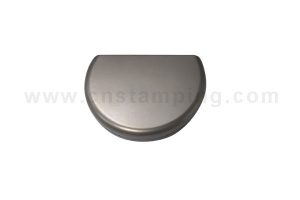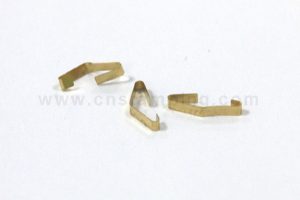How Can Metal Stamping Use in The Medical Field?
With the rapid development of the medical technology sector, medical devices are critical to the modern healthcare industry. Manufacturers is challenged by rising healthcare costs, as prices rise nearly as quickly as technologies adapt. To solve this problem, many professionals have begun to regard metal stamping as a quick, consistent and more cost-effective solution.
In this situation, high precision metal stamping technology has become the preferred alternative to machining for medical applications. Today, metal stamping manufacturers can provide many mirco and miniture metal parts which are required by the medical industry. Precision metal stamping parts have been widely used in many medical devices. It has become an important trend for the rapid development of the stamping industry in the future.
Suppiers Choice for Medical Stamping
As we all know, the medical industry needs ultra-high precision medical devices. Strict industry safety standards make it increasingly important to work with metal stamping manufacturers. In the medical and healthcare industries, equipment—including all integrated parts, components, and assemblies—are subject to strict standards that focus on ensuring the safety of medical personnel and patients. Therefore, Working with ISO 9001 and ITAF 16949 certified stamping manufacturers can ensures your medical components will meet all safety and industry requirements.
At Heju Precision Stamping Company, we are an industry-leading China precision metal stamping manufacturer specializing in bending, forming, punching, and deep drawn stamping components and providing one-stop custom metal stamping services. We accommodate projects involving a variety of metal materials and rapid prototype to production quantities. In a another words, Equipped with over 30 years of metal stamping experience, we have the knowledge and skills necessary to produce high-quality custom stampings parts for customers in a wide range of industries, including medical metal stampings.
Materials Choice for Medical Stamping
In addition to the metal stamping technique you choose, it is important to select the right materials for your medical stamped component. There are some common materials used throughout the medical and healthcare industries, such as Aluminum, stainless steel, titanium, and zinc.
- Stainless steel. This material demonstrates numerous characteristics that make it suitable for use in medical components. Such as high strength, corrosion resistance, chemical inertness (including with cleaning compounds), biocompatibility, and durability. For these reasons, among others, medical manufacturers often use it in implantable devices, surgical instruments, and other medical equipment.
- Aluminum. Similar to stainless steel, this material exhibits excellent strength, corrosion resistance.
- Titanium. It is a silver-white transition metal with the characteristics of light weight, high strength, metallic luster, and resistance to wet chlorine corrosion.
- Zinc. It is a light gray transition metal that forms a thin and dense basic zinc carbonate film on the surface at room temperature, which can prevent further oxidation.
Device Applications for Medical Stamping
Surgical Instruments
Stamping produces many common surgical instruments such as forceps, retractors, cannulas or drill bit assemblies, but the jaw housing is a particularly compelling case study of stamping’s potential in this field.
The traditional method of manufacturing jaw housings involves machining metal tubes. However, It turns out that stamping can not only produce jaw housings, but also at half price with the same quality standards. We believe that stamping can also save money on other various surgical instruments.
Device Enclosures
One of the metal materials commonly used for device enclosures is titanium. Because it can resist the corrosion of bodily fluids and rarely stimulates negative reactions in human tissues.
People design device enclosures to protect permanently implanted devices such as, cochlear devices, pacemakers, internal defibrillators or drug pumps which is make inert titanium to be the perfect solution.

Implantable Components
There are numerous implantable tiny metal components in brackets, clips, and clamps commonly used in medical care. For example, Some of these parts have to be small to fit in small enclosures. Implantable components are incredibly small—smaller than a human fingernail or scalpel tip.

Besides above, there are also typical stamping components for medical applications as below:
-
-
- Probes, including temperature and thermistor probes
- Instrument connectors, couplings and fittings
- Oxygen tank subcomponents
- Syringes
-
If you’re ready to learn more about how metal stamping can dramatically improve your medical device operations, please contact us or request a quote today.
